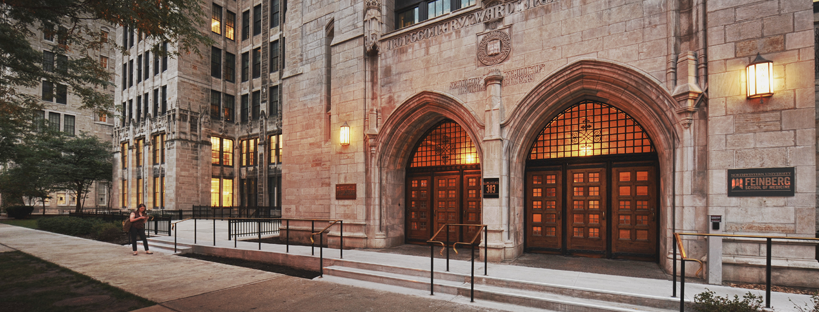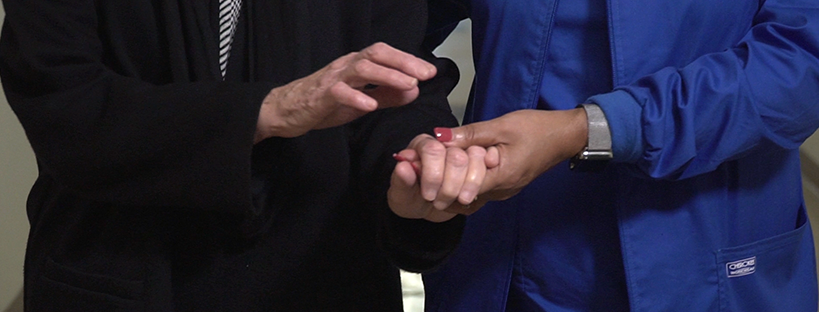Cancer Care and Health Equity in the COVID-19 Era
A new Alliance to Advance Patient-Centered Cancer Care Webinar
The COVID-19 pandemic has forced many health care systems to alter the way they provide services to their communities, embracing substantial changes to their clinical practice. With institutions considering making some of these changes permanent, it is essential to reflect on the implications for vulnerable and underserved patient
populations. How will they fare navigating a new system of care increasingly centered on technology and remote services?
New Paper from the University of Arizona Examines Financial Toxicity, Quality of Life for Cancer Survivors
A new study from Alliance to Advance Patient-Centered Cancer Care program partner, the University of Arizona, dives into financial vulnerability for cancer patients with health insurance, aiming to better understand how health behaviors and psychosocial concerns may be associated with financial burden. Elizabeth Ver Hoeve, MA, from the Department of Psychology at the University of Arizona, is the lead author of the paper, “Patient-Reported Financial Toxicity, Quality of life, and Health Behaviors in Insured US Cancer Survivors,” which was recently published in the journal Supportive Care in Cancer.
Improving Patient-Provider Communication in the Era of COVID-19
Dr. Debra Roter, Johns Hopkins University Distinguished Service Professor in the Department of Health, Behavior, and Society at the Bloomberg School of Public Health, has been working with her team to adapt the intervention so that it can be delivered remotely. All changes will make it much more convenient for patients to participate.
The COVID-19 pandemic has brought many dramatic changes to our everyday life. As millions of Americans have opted to stay at home as much as possible, clinical practices have been expanding telemedicine efforts to reduce the risk of transmission, interacting with patients remotely via technology such as cell phones and other communication applications. While telemedicine has been available for many years, the use of these services has dramatically increased this year. The Cleveland Clinic recently reported logging more than 60,000 telemedicine visits in March. Before the global pandemic, it averaged about 3,400 virtual visits per month.
The Evolution of Un Abrazo Para La Familia: Implications for Survivors of Cancer
In a follow-up to their previous publication Oregon’s Familias en Acción replicates benefits for underserved cancer co-survivors through Un Abrazo Para la Familia, the team at the University of Arizona have expanded their Un Abrazo Para La Familia intervention to recruit and deliver the supportive care program to care recipients themselves.
While Abrazo was originally designed to help co-survivors cope with a loved one’s cancer diagnosis, the intervention team decided to expand the program to care recipients themselves. Thirty care recipients from existing cohorts in Tucson & Portland revealed clear benefits for cancer survivors. Data collected show that both cancer knowledge and self-efficacy (confidence in that cancer knowledge) significantly increased within the care recipient group. These results gave researchers the confidence to go forward with the recruitment of survivors as well as co-survivors. More data on the impact of Un Abrazo Para la FamiliaTM should be available soon.
Much More than A Diagnosis: Cancer Navigation Updates from the MGH Cancer Center
“Just being able to help a patient, even making one appointment is where I get my satisfaction and joy,” Lead Patient Navigator Carmen Benjamin remarked.
The Massachusetts General Hospital Cancer Center navigation intervention is combining electronic health records and human touch to help patients receive the most comprehensive cancer care possible. The center is using TopCare (Technology for Optimizing Population Care in a Resource-limited Environment) software to match patient navigators with newly-diagnosed cancer patients who may require extra support. Navigation services at MGH are rooted in social work, with Lead Patient Navigator Carmen Benjamin and her team working to connect patients with transportation resources, financial services, and offering emotional support during appointments.
We last spoke to Carmen when we filmed the video Massachusetts General Hospital Cancer Center: Patient Navigation as the Cornerstone of Cancer Care. During her interview, she expressed great satisfaction helping cancer patients overcome barriers to care. Since most of Carmen’s patients are underserved, they often present with multiple illnesses to manage in addition to their cancer, and often lack social support: “Just being able to help a patient, even making one appointment is where I get my satisfaction and joy,” she remarked.
Advancing Health Equity with Federally Qualified Health Centers (FQHCs): An Oncology Perspective
A new Alliance to Advance Patient-Centered Cancer Care Webinar
Promoting health equity is an important objective for most oncology and public health researchers; however, developing an intervention designed to move beyond the written word and into clinical practice can be a challenging process. This webinar will explore what it means to work with FQHCs on pragmatic cancer-based interventions, bridging the gap between academic research and the needs of community health centers. Julie Armin, PhD and Nancy Johnson, RN, MSN, MS, PhD will introduce the University of Arizona’s fruitful collaboration with El Rio Health, one of the largest federally qualified health centers in the country. Together, they will share their experiences in developing, implementing, and evaluating interventions that deliver long-lasting community impact.
The Gift of Human Kindness: How one Nurse Navigator is Shaping Hospital Policies and Seeing Her Patients through the Biggest Fight of their Lives
Nurse navigator Susan Coples is the engine that drives patient-centered cancer care at the Georgia Cancer Center for Excellence at Grady Health System: in just two years, she has both influenced hospital policies and made a real difference in the lives of her patients.
It Takes a Village to Deliver High Quality Cancer Care
The Alliance to Advance Patient-Centered Cancer Care aims to increase access to care and reduce disparities by bringing together grantee sites and community partners from all over the country. By working together as a collaborative, Alliance sites are implementing targeted programs and measuring their impact, informing the conversation around patient-centered cancer care in the process.
Johns Hopkins Medicine Showcases Promising Approach to Survivorship Care
A paper recently published in the Journal of Cancer Survivorship makes a strong case for a unique model of survivorship care founded on primary care. The Johns Hopkins Primary Care for Cancer Survivor (PCCS) Clinic has been successfully operating for four years, helping cancer patients cope with potential health challenges in a multi-disciplinary setting. In addition to providing full primary and follow-up cancer care services, the clinic helps patients manage long-term side effects of cancer treatment such as providing referrals to specialty services, psychosocial support, and community organizations centered on cancer survivorship. Continue reading









